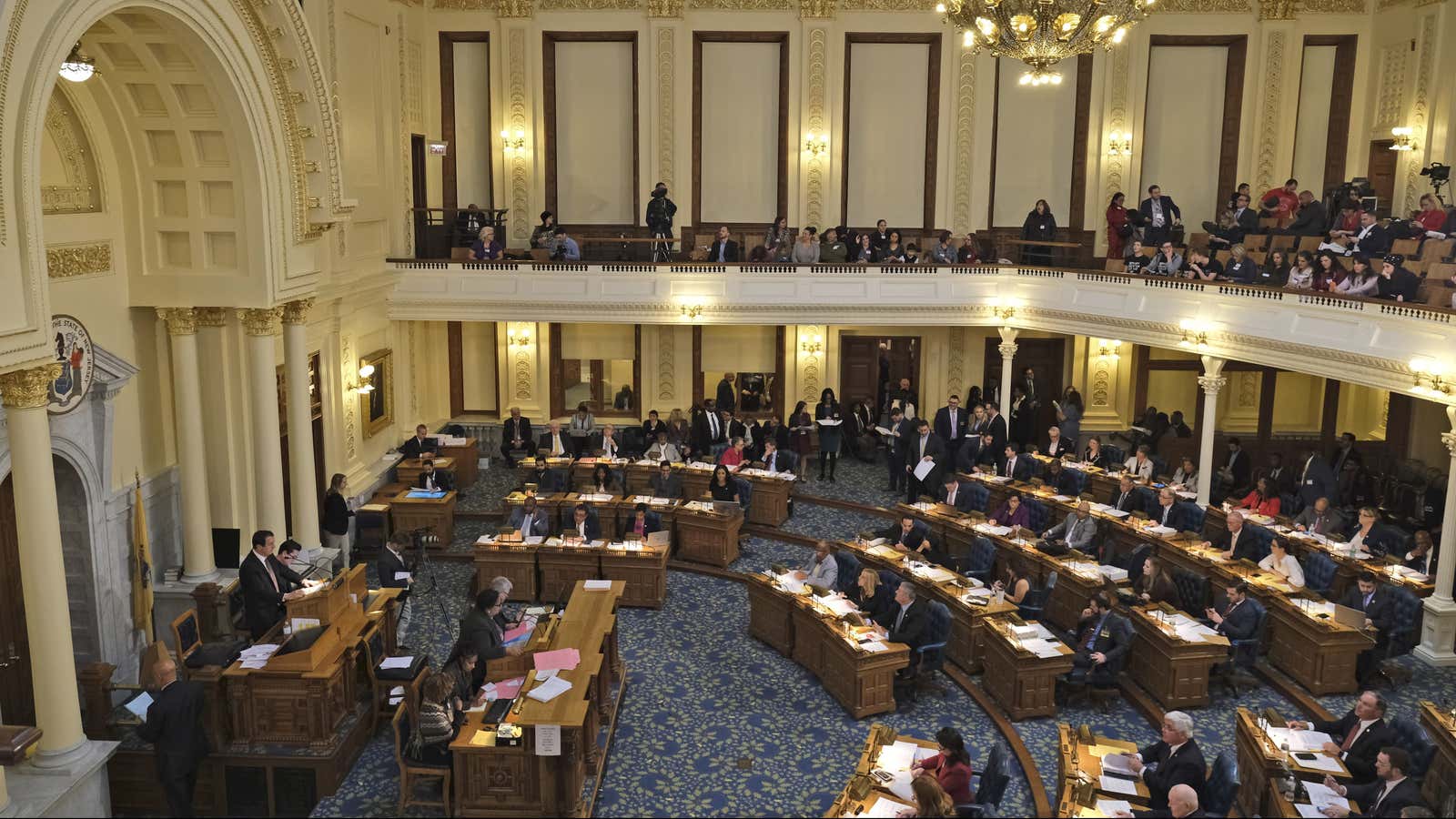The US 2020 census is officially underway, and with it the data collection that will inform next year’s redistricting effort. The law requires electoral districts to have substantially equal population, in terms of numbers, as well as provide fair representation to race and ethnic minorities, in line with the 1965 Voting Rights Act.
In order to ensure this equality, districts have to be revised after every census, and their boundaries have to provide for federal requirements, as well as specific states’ ones. Redistricting, and attempts at interfering with fair representation, have great political implications, yet the process can be complex and not necessarily transparent.
New Jersey is the first state to address this in a radical way. On Jan. 22, the state’s governor Phil Murphy signed the Voting Precinct Transparency Act into law, which makes precinct and district boundaries easily available online for download, free of charge. Election results, too, will be published online within 90 days of their certification, and will be available at each county clerk’s website.
The new law will make information about districts much more readily available, according to the Princeton Gerrymandering Project (PGP), a Princeton University research initiative that analyzes publicly available data to ensure district lines provide a fair representation. The PGP supported lawmakers in the drafting of the bill.
In all other states, the precinct and district border data need to be collected county by county and then compiled, as the PGP has done so far. In New Jersey it will now be easily accessible on the state’s Division of Elections website. This makes it much easier for regular people to access information about their district, as well as use digital tools, such as Dave’s Redistricting App, or PGP’s Representable.org, which allows users to try and design their own districts and account for their own communities of interest, which have to be taken into account in the boundary drawing process.
This way the public engagement in redistricting, as well as scrutiny of possible gerrymandering, is easier and more widespread.
“The most important responsibility to preserving our fundamental freedoms is ensuring a fair election process,” said state senator Linda Greenstein, commenting on the act. “We have the ability to effectively compile data and can easily share that information online for all to access.”
The law is one of three adopted in New Jersey to ensure election fairness: The state also voted to allow online voter registration, and to register inmates as residents where they lived prior to being in prison. Before this law, inmates, who cannot vote, were all registered as living in the area where they were in custody, which altered the demographics of those areas by adding a nonvoting population to it, in what is known as “prison gerrymandering.”
